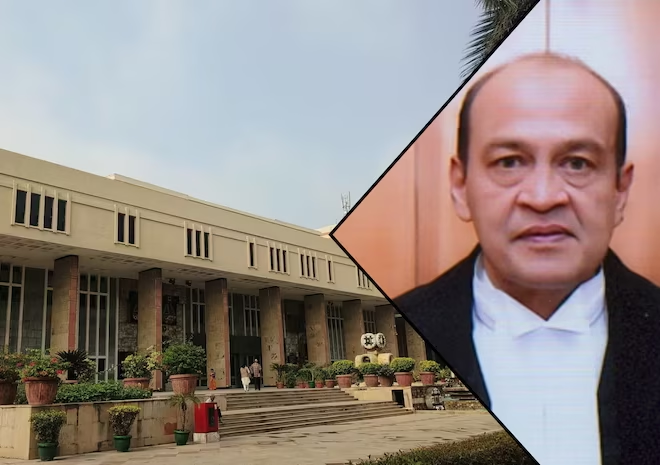
7 Shocking Facts About Badar Khan Suri: Indian-Origin Scholar at Georgetown University Detained in US, Faces Possible Deportation
Introduction
Badar Khan Suri, a prominent Indian-origin scholar and postdoctoral fellow at Georgetown University, has recently found himself at the center of a legal and political storm in the United States. Suri was detained by U.S. federal immigration authorities on March 17, 2025, following allegations of ties to Hamas and accusations of promoting anti-Semitic content. The case has sparked widespread debate on academic freedom, immigration policies, and the broader political environment in the U.S., particularly concerning scholars and activists of Middle Eastern and South Asian descent.
The Department of Homeland Security (DHS) claims that Badar Khan Suri’s alleged association with Hamas and his public stance on the Israel-Palestine conflict are grounds for deportation. However, Suri’s legal team and supporters argue that he is being unfairly targeted due to his political views and advocacy for Palestinian rights. This unfolding case raises significant questions about freedom of speech, political expression, and the rights of non-citizens under U.S. law.
Who is Badar Khan Suri?
1. Academic Background and Early Career
Badar Khan Suri was born in New Delhi, India, in 1992. He grew up in a middle-class family with a strong academic background. His father, Dr. Anwar Khan Suri, is a retired professor of political science at Jamia Millia Islamia, and his mother, Razia Suri, is a social worker. Suri exhibited a deep interest in politics and international relations from a young age, which eventually led him to pursue higher education in peace and conflict studies.
Suri earned his undergraduate degree in Political Science from Jamia Millia Islamia, one of India’s most prestigious universities. He then completed a master’s degree in International Relations from the same institution, where his research focused on post-conflict reconciliation and state-building in the Middle East.
In 2020, Suri earned his Ph.D. in Peace and Conflict Studies from the Nelson Mandela Center for Peace and Conflict Resolution at Jamia Millia Islamia. His doctoral dissertation, titled “Transitional Democracy, Divided Societies, and Prospects for Peace: A Study of State Building in Afghanistan and Iraq,” explored the challenges of establishing democratic governance in post-conflict regions. His work received recognition for its in-depth analysis and practical policy recommendations.
2. Role at Georgetown University
After completing his Ph.D., Badar Khan Suri was offered a postdoctoral fellowship at Georgetown University’s Alwaleed Bin Talal Center for Muslim-Christian Understanding. The center, known for promoting interfaith dialogue and research on Muslim-Christian relations, welcomed Suri’s expertise in conflict resolution and Middle Eastern politics.
At Georgetown, Suri taught courses on race, power, and justice, contributing to the university’s Pathways to Social Justice curriculum. His classes focused on the intersections of colonialism, state violence, and the politics of identity. He also led research projects on the impact of U.S. foreign policy in the Middle East and South Asia, regularly publishing in academic journals and speaking at international conferences.
Details of the Detention
3. Allegations by the Department of Homeland Security
Badar Khan Suri was detained on March 17, 2025, by agents from U.S. Immigration and Customs Enforcement (ICE) while leaving his apartment in Washington, D.C. According to the Department of Homeland Security (DHS), Suri allegedly maintained ties with a senior advisor to Hamas and used social media platforms to disseminate anti-Semitic content.
The DHS stated that:
“Suri has engaged in activities that undermine the security and foreign policy interests of the United States. His public statements and private communications indicate a pattern of ideological alignment with terrorist organizations.”
These allegations have not been substantiated with concrete evidence in the public domain. However, reports suggest that DHS obtained intelligence through classified surveillance programs, raising concerns about privacy violations and government overreach.
4. Legal Proceedings and Defense Strategy
Suri’s legal team, led by civil rights attorney Daniel Levy, filed a Writ of Habeas Corpus in federal court, challenging the legality of his detention. Levy argued that Suri’s arrest was politically motivated and violated his First Amendment rights.
Levy stated:
“Dr. Suri has been targeted not because he poses a threat, but because he has exercised his constitutional right to free speech. His criticism of U.S. foreign policy and support for Palestinian rights have made him a target in the current political climate.”
Political and Social Backlash
5. Georgetown University’s Response
Georgetown University released a statement expressing concern over Badar Khan Suri’s detention. The university acknowledged that Suri had complied with all legal requirements related to his visa and residency status.
The statement read:
“Georgetown University stands by Dr. Suri’s right to academic freedom and free speech. We are closely monitoring the legal proceedings and hope for a fair resolution.”
6. Support from Academic and Civil Rights Groups
Several academic institutions and civil rights organizations have condemned Suri’s detention, describing it as part of a broader crackdown on scholars and activists critical of U.S. foreign policy. The American Civil Liberties Union (ACLU) and Amnesty International have issued statements calling for Suri’s immediate release and an end to politically motivated deportation efforts.
“Dr. Suri’s case sets a dangerous precedent. If scholars can be detained and deported for their political beliefs, it will have a chilling effect on academic freedom across the country.” – ACLU statement
7. Future Implications and What Lies Ahead
Suri remains in a detention facility in Louisiana, awaiting an immigration court hearing scheduled for April 15, 2025. His legal team plans to argue that the DHS’s allegations are politically motivated and lack factual evidence.
The outcome of Badar Khan Suri’s case could have far-reaching implications for academic freedom, immigration policy, and political expression in the United States. If deported, Suri would face an uncertain future, potentially barred from reentering the U.S. or facing further restrictions on his academic work.
If Suri prevails in court, his case could strengthen legal protections for scholars and activists facing similar challenges. However, the broader political environment suggests that such cases may become more common as the U.S. government expands its national security apparatus.
Conclusion
The case of Badar Khan Suri underscores the complex intersections of immigration policy, national security, and academic freedom in the United States. As the legal proceedings unfold, Suri’s fate will be closely watched by civil rights advocates, academic institutions, and political commentators. The outcome could set a crucial precedent for the rights of scholars and activists in an increasingly polarized and securitized political landscape.



One thought on “7 Shocking Facts About Badar Khan Suri: Indian-Origin Scholar at Georgetown University Detained in US, Faces Possible Deportation”